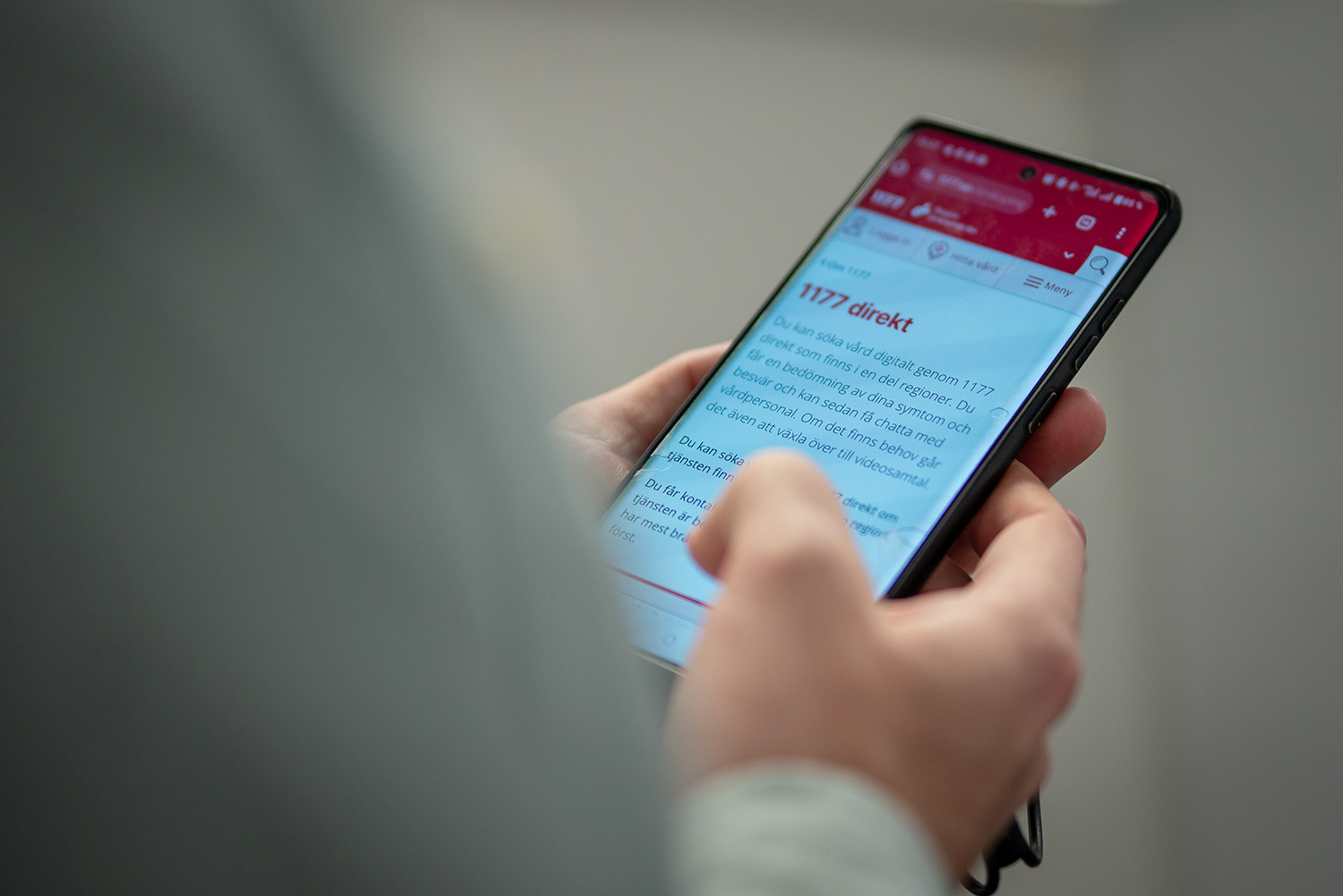Digital healthcare places high demands on both patients and staff
1177 Direkt is a digital platform used in several Swedish regions to offer healthcare advice via a chat function. A new study, in which Jönköping University (JU) has participated, shows that patients’ experiences of the service are mixed. The platform is appreciated for its accessibility, but many feel uncertain about when medical staff are online and when a response from them can be expected.

The increased demand for primary care requires more efficient use of resources. Digital healthcare services are seen as a promising solution to improve efficiency. To enable this as the services scale up, it is crucial to understand which factors influence patients’ choices to use digital healthcare services. Therefore, in 2024, a qualitative study was conducted in which 23 interviews were conducted with patients who had used the 1177 Direkt service.
Varied experiences of interaction
The patient begins the chat function by answering a few questions where they can describe their symptoms. Depending on how serious the matter is assessed to be, they receive advice on, for example, self-care, further contact with a healthcare advisor via a chat functionor a telephone appointment, or are urged to call 112 if it is an emergency.
“Those who participated in the study had very different opinions. Accessibility was perceived as good since they could use the chat at any time, but some experienced uncertainty about when they could expect a response from staff,” says Felicia Gabrielsson Järhult, doctoral student at the School of Health and Welfare at JU.
The study also showed that patients experienced varying levels of interaction in the chat. Healthcare staff had different approaches when it came to communicating in writing. Sometimes patients encountered a caring dialogue, sometimes the responses were very brief – and this differed on separate occasions for those who had several healthcare contacts.
“This puts pressure on both patients and healthcare staff to be able to express themselves clearly in writing. The study shows that staff need more training in how to communicate healthcare advice through text in real time,” says Felicia.
To improve efficiency, the researchers believe that the focus should be on accessibility, time savings, and a more personalised user experience, as well as greater consideration for the needs of returning patients.
Research takes time, digital development moves quickly
Since the pandemic, research on digital healthcare has been a hot topic. Felicia Gabrielsson Järhult started a collaboration in 2019 with researchers at the Karolinska Institue and Uppsala University. The result of this today is a research network consisting of members from about 15 higher education institutions. The researchers collaborate on research applications and publications, such as the aforementioned study on 1177 Direkt. In addition, they organise digital meetings and conferences.
“One challenge with research is that it takes time, while digital development moves quickly. As researchers, we need to learn which methods we can use, and the network contributes with up-to-date, scientifically-based knowledge as supporting evidence for how the digitalisation of healthcare can be organised,” says Felicia.
Facts
Research team: Pär Eriksson at Linnaeus University, Felicia Gabrielsson-Järhult at the School of Health and Welfare at Jönköping University, Helén Thorold Nylin at Region Östergötland, and Evalill Nilsson at Linnaeus University.
Read more about the network Swedish Collaboration on Digital Care Research: https://digitalcareresearch.se/
